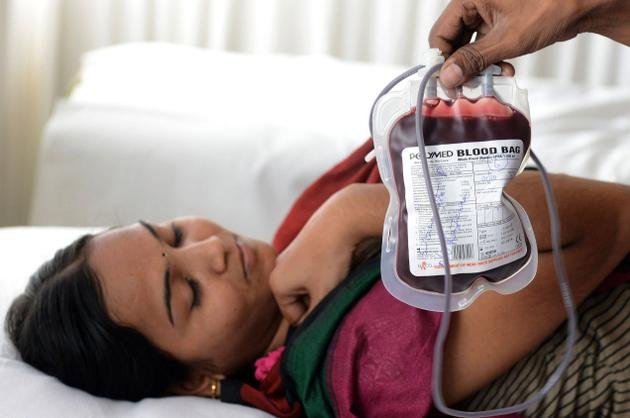
The blood type is determined by the genes inherited by humans from their parents, as well as by substances in the blood, according to the Daily Health Post.
Antigen, the proteins found on the surface of redhead cells, responsible for the production of antibodies.
Antibodies are the proteins that control infection and are present in the plasma (the liquid part of the blood). Antibodies are part of the immune system that attacks specific antigens if found in the body.
ABO system
Under this system, blood may belong to one of 4 groups:
• A meaning that you have antigens A on red blood cells and antibodies B (ie antibodies that attack the B antigens).
• B in the sense that you have antigen B and antibodies to fight A.
• AB means that you have antigens A and B, but there are no antibodies to A or anti-B.
• O You do not have any antigens, but there are both antibodies to A and B.
Rh system
Red blood cells can also have another antigen called Factor Rh.
Your blood can be:
• Positive RhD (also called positive risus) in the sense that antigen exists.
• Negative RhD (also called negative risus) in the sense that antigen does not exist.
According to the ABO group and the RhD group, your blood type is determined. For example, if your blood is O and RhD is positive, your blood type will be positive.
Microscopic substances on the surface of blood cells that interact with the immune system either raise or reduce the risk of several diseases.
This means that depending on blood type A, B, AB, or O, you may be more likely to develop cancer, ulcers, heart disease or even memory problems.
Your blood type in your future diseases
Type A
• People with type A blood are generally more likely to develop stomach cancer, especially if they drink and smoke, 20% more than B and O.
• Women who carry the A blood group are particularly vulnerable to fertility, especially in their thirties, according to researchers at the Albert Einstein School of Medicine in New York.
Type B
• People belonging to this group are more likely to have pancreatic cancer.
• They are also more prone to problems associated with memory, as well as dementia and Alzheimer's in subsequent years.
• They are also more likely to have ulcers and infections.
• The metabolism in this group is usually higher than that of other blood types.
• Type B owners can build muscles faster and easier and as such, can achieve better results than exercise.
Type O
• People belonging to this group are less likely to develop heart disease.
• 37% of this group is less likely to develop pancreatic cancer.
• This group is usually less likely to have heart attacks and stomach cancer than other groups.
• Men belonging to this group are susceptible to obesity.
• Type O women have low fertility levels.
Type AB
• AB patients are 23% more likely to develop heart disease than others.
• They are at greater risk of developing cognitive diseases.
• Pregnant women of the AB blood group suffer more from high blood pressure known as "pre-eclampsia".
• The owners of this species are 82% more likely to have memory-related problems.
• Members of the AB blood group share the advantages and challenges that may be experienced by members of both blood type A and blood group B.
Interesting! Upvoted you